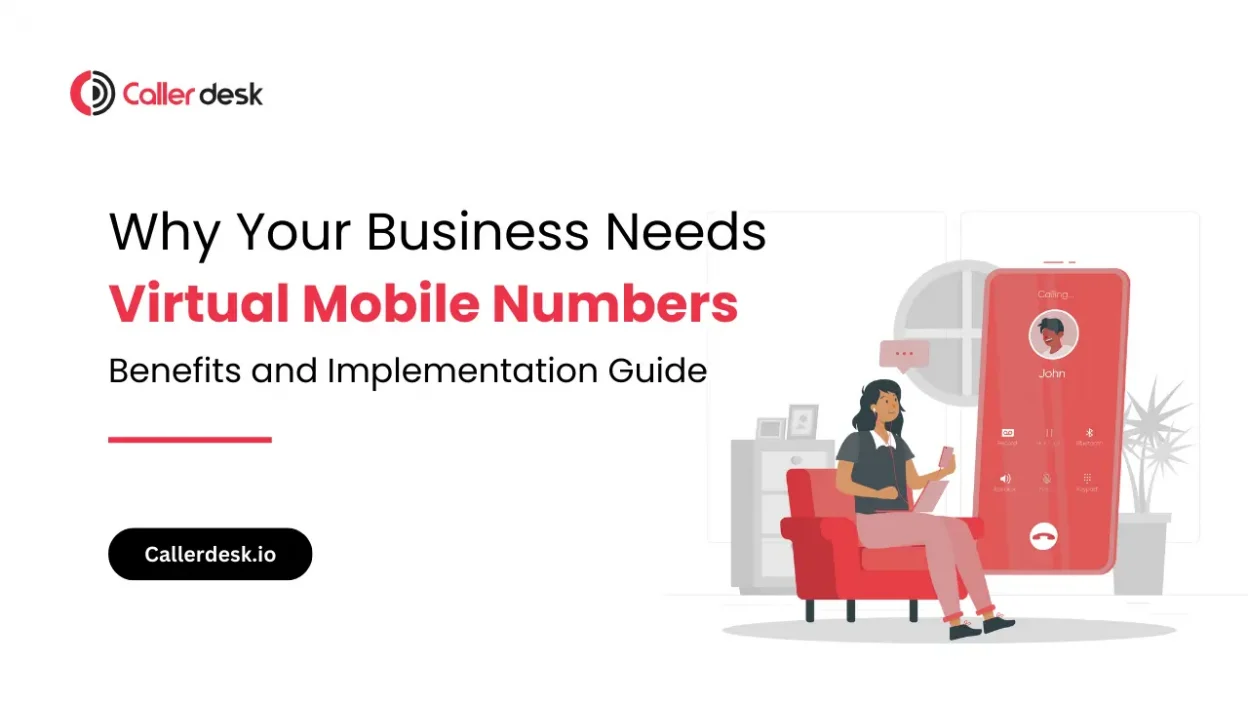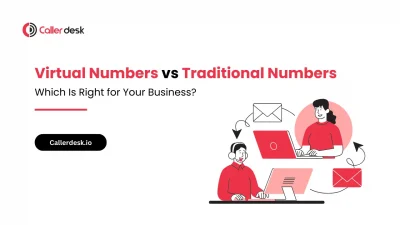Have you ever thought about how virtual mobile number can benefit your business?
These numbers offer enhanced privacy, cost efficiency, flexibility, and a professional image. They are scalable, come with advanced features, and improve customer interactions. In this guide, you’ll clearly understand why your business needs virtual numbers, their practical applications, and how to implement them.
What is a Virtual Number?
Virtual numbers are phone numbers that work over the internet instead of being tied to a specific phone line or location. They can be directed to multiple devices like smartphones, tablets, or computers, providing great flexibility and efficiency.
Key Benefits of Virtual Mobile Number for Your Business
1. Global Reach and Local Presence
Imagine you run a small business in New York, but you want to attract customers from London. With virtual numbers, you can get a London phone number without setting up a physical office there.
This way, your London customers feel like they’re calling a local business, building trust and making it easier for them to reach you. This makes it seem like you have a local presence in multiple regions, which can be a huge advantage for expanding your market reach.
2. Cost-Efficient Communication
Think about the costs associated with traditional phone systems: buying hardware, maintaining it, and paying high international call rates. Virtual numbers use VoIP (Voice over Internet Protocol) technology, meaning they operate over the internet.
This significantly cuts down your expenses, especially if your business makes a lot of international calls. You save on the cost of long-distance calls and don’t have to invest in expensive hardware.
3. Enhanced Customer Service
When a customer calls your business, they want quick and efficient service. Virtual phone numbers can forward calls to the right person or department instantly.
Features such as voicemail-to-email ensure that no client inquiries go unsolved, increasing customer satisfaction. This level of efficiency can lead to greater customer loyalty and positive reviews for your business.
4. Flexibility and Mobility
In today’s world, work isn’t confined to an office. Employees might work from home, while traveling, or even from a café.
Virtual phone numbers allow calls to be routed to any device, making sure employees can receive important calls no matter where they are. This flexibility ensures they remain productive and responsive.
Your team can stay connected with clients and each other, regardless of their physical location, promoting a more dynamic and adaptable work environment.
5. Scalability
As your firm grows, so will your communication requirements. It might be difficult to add new lines to traditional phone systems.
Virtual phone numbers allow you to easily add or remove lines as needed without any physical installations. Whether you’re expanding your team or downsizing, virtual numbers scale with your business seamlessly.
This means you can quickly adapt to changes in your business without worrying about communication disruptions.
6. Professional Image
Even if you’re a small business, you can project a big company image. Virtual numbers let you set up custom greetings, professional voicemail messages, and even toll-free numbers.
This makes your business appear more credible and professional, helping you compete with larger corporations. Having a toll-free number can also make it easier for customers to contact you, as they won’t be deterred by long-distance charges.
Practical Applications of Virtual Phone Numbers
- Customer Support: Virtual numbers can route calls to the appropriate department or representative to ensure efficient resolution of customer queries. This helps streamline customer service operations and improves response times.
- Marketing Campaigns: By assigning unique virtual numbers to different marketing campaigns, you can track their effectiveness. This allows you to see which campaigns are generating the most calls and adjust your strategy accordingly.
- Remote Work: Virtual numbers allow employees to work from anywhere while staying connected to the business phone system. This ensures that all employees can maintain productivity and communication, whether they are in the office, at home, or on the go.
How to Implement Virtual Numbers in Your Business
1. Choose a Reliable Provider
Select a provider with a robust infrastructure and excellent customer support. Look for reviews and compare features to ensure they meet your business needs.
A decent supplier will offer a variety of services, including local, toll-free, and international phone numbers.
2. Select Your Numbers
Decide whether you need local, toll-free, or international numbers based on your business needs. Consider your target demographics and client preferences.
Local numbers can make your business more accessible to local customers, while toll-free numbers can enhance your professional image.
3. Configure Your System
Set up call forwarding, automated attendants, and other features to optimize your communication strategy. Make sure the setup aligns with your business processes to ensure smooth operation.
This might include setting up specific numbers for different departments or services.
4. Integrate with Existing Systems
Ensure that your virtual numbers work well with your CRM and other business applications. This connection simplifies processes and enhances customer service.
By linking call data with your CRM, you can keep better track of customer interactions and enhance your overall service.
Conclusion
Virtual mobile numbers are an essential tool for modern businesses. They offer cost-effective, scalable, and flexible communication solutions that enhance customer interactions and support business growth.
By integrating virtual mobile number, your business can stay competitive, improve efficiency, and present a professional image to customers.





